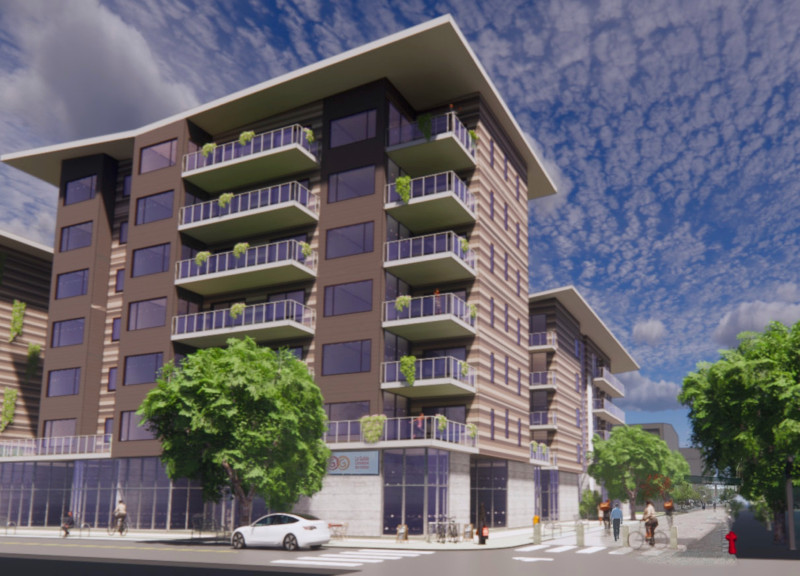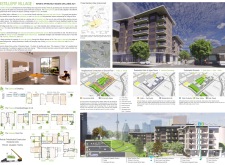5 key facts about this project
The Distillery Village in Toronto offers a carefully planned environment that promotes community living. The development is made up of several small buildings that create distinct spaces for public interaction and shared activities within courtyards. The design focuses on being adaptable, allowing it to respond to the varying demands of different neighborhoods while maintaining an inviting character.
Community Spaces
A key aspect of the Distillery Village is its emphasis on community engagement. At the ground level, open areas serve both communal and commercial purposes. These spaces encourage residents to gather, interact, and participate in local activities. The integration of retail spaces adds a lively element, making it easier for residents to access daily services and contribute to the vibrancy of the Village.
Variety in Housing
The upper floors contain a mix of residential units designed to accommodate different lifestyles and family sizes. This variety promotes essential living functions such as resting, dining, and working. Common circulation areas throughout the buildings strengthen connections among residents, inviting social interactions and creating a sense of belonging within the community.
Green Solutions
Central to the Village’s design is a thoughtful landscaping approach that integrates green spaces with parking areas. The parking is covered with vegetation, creating an attractive view as it flows into terraces for community gardens and walkways. Rainwater management is also an important feature, as the system collects and filters rainfall into a pond used for irrigation. This promotes sustainability while enhancing the overall environment.
Diverse Options
The design accommodates different types of housing that reflect various life stages, ensuring everyone feels welcome. The arrangement of buildings around courtyard spaces supports personal relationships, fostering community spirit.
As a final detail, the combination of garden terraces and accessible outdoor spaces encourages residents to connect with nature and each other, contributing to a rich community experience.


















































